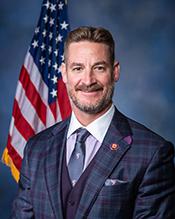0
0
0
Simplify Automatic Filing Extensions Act
1/3/2024, 5:45 PM
Summary of Bill HR 3566
Bill 118 HR 3566, also known as the Simplify Automatic Filing Extensions Act, aims to streamline the process for obtaining filing extensions for certain tax forms. The bill proposes to automatically grant a six-month extension for filing certain tax forms without the need for taxpayers to submit a separate request for an extension.
The bill specifically targets tax forms that are commonly filed by individuals and small businesses, such as Form 1040 for individual income tax returns and Form 1120 for corporate tax returns. By simplifying the process for obtaining filing extensions, the bill seeks to reduce the burden on taxpayers and make it easier for them to comply with their tax obligations.
Proponents of the bill argue that automatic filing extensions will help taxpayers avoid penalties for late filing and provide them with more time to gather the necessary information to complete their tax returns accurately. They also believe that the bill will help reduce the workload of the Internal Revenue Service (IRS) by eliminating the need to process separate extension requests. Opponents of the bill, however, raise concerns about the potential for abuse of automatic filing extensions and the impact it may have on tax compliance. They argue that automatic extensions could lead to delays in tax filings and reduce the effectiveness of the IRS in enforcing tax laws. Overall, the Simplify Automatic Filing Extensions Act aims to simplify the process for obtaining filing extensions for certain tax forms and reduce the burden on taxpayers. The bill has garnered support from some lawmakers and tax advocacy groups, but it also faces opposition from those concerned about its potential impact on tax compliance.
The bill specifically targets tax forms that are commonly filed by individuals and small businesses, such as Form 1040 for individual income tax returns and Form 1120 for corporate tax returns. By simplifying the process for obtaining filing extensions, the bill seeks to reduce the burden on taxpayers and make it easier for them to comply with their tax obligations.
Proponents of the bill argue that automatic filing extensions will help taxpayers avoid penalties for late filing and provide them with more time to gather the necessary information to complete their tax returns accurately. They also believe that the bill will help reduce the workload of the Internal Revenue Service (IRS) by eliminating the need to process separate extension requests. Opponents of the bill, however, raise concerns about the potential for abuse of automatic filing extensions and the impact it may have on tax compliance. They argue that automatic extensions could lead to delays in tax filings and reduce the effectiveness of the IRS in enforcing tax laws. Overall, the Simplify Automatic Filing Extensions Act aims to simplify the process for obtaining filing extensions for certain tax forms and reduce the burden on taxpayers. The bill has garnered support from some lawmakers and tax advocacy groups, but it also faces opposition from those concerned about its potential impact on tax compliance.
Congressional Summary of HR 3566
Simplify Automatic Filing Extensions Act or the SAFE Act
This bill eliminates the penalty for failure to pay income tax for individual taxpayers who timely pay 125% of their income tax liability for the immediately preceding taxable year.
Read the Full Bill
Current Status of Bill HR 3566
Bill HR 3566 is currently in the status of Bill Introduced since May 22, 2023. Bill HR 3566 was introduced during Congress 118 and was introduced to the House on May 22, 2023. Bill HR 3566's most recent activity was Referred to the House Committee on Ways and Means. as of May 22, 2023
Bipartisan Support of Bill HR 3566
Total Number of Sponsors
1Democrat Sponsors
1Republican Sponsors
0Unaffiliated Sponsors
0Total Number of Cosponsors
26Democrat Cosponsors
16Republican Cosponsors
10Unaffiliated Cosponsors
0Policy Area and Potential Impact of Bill HR 3566
Primary Policy Focus
TaxationAlternate Title(s) of Bill HR 3566
Simplify Automatic Filing Extensions Act
Simplify Automatic Filing Extensions Act
SAFE Act
To amend the Internal Revenue Code of 1986 to allow individuals to avoid a penalty for failure to pay income tax by timely paying 125 percent of the income tax liability for the prior year.
Comments
Sponsors and Cosponsors of HR 3566
Latest Bills
Southcentral Foundation Land Transfer Act of 2025
Bill HR 3620December 11, 2025
Affordable HOMES Act
Bill HR 5184December 11, 2025
To reauthorize the Junior Duck Stamp Conservation and Design Program Act of 1994.
Bill HR 1098December 11, 2025
A bill to provide for an extension of the legislative authority of the National Emergency Medical Services Memorial Foundation to establish a commemorative work in the District of Columbia and its environs.
Bill S 2546December 11, 2025
Moab UMTRA Project Transition Act of 2025
Bill S 1321December 11, 2025
Federal Mechanical Insulation Act
Bill HR 3474December 11, 2025
Providing for consideration of the bill (H.R. 2550) to nullify the Executive Order relating to Exclusions from Federal Labor-Management Relations Programs, and for other purposes.
Bill HRES 432December 11, 2025
Protecting Our Courts from Foreign Manipulation Act of 2025
Bill HR 2675December 11, 2025
Tipped Employee Protection Act
Bill HR 2312December 11, 2025
A bill to redesignate the National Historic Trails Interpretive Center in Casper, Wyoming, as the "Barbara L. Cubin National Historic Trails Interpretive Center".
Bill S 790December 11, 2025





